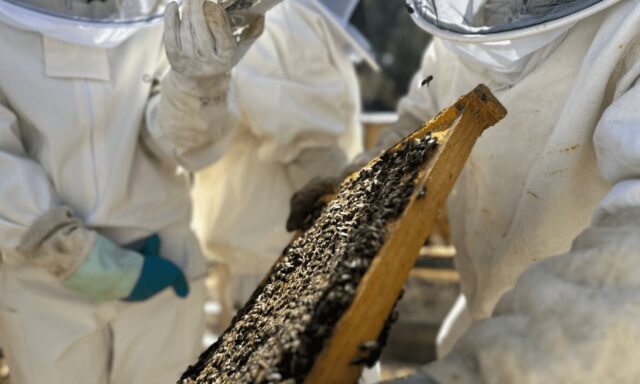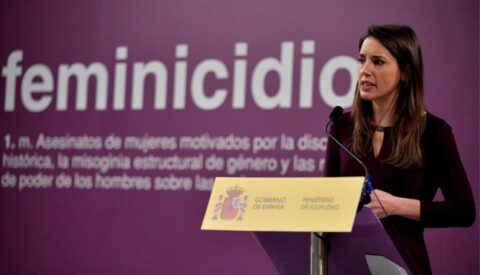A Bee For Every Person: Inside Spain’s Ambitious Re-Pollination Plans
The Smart Green Bees project aims to tackle the bee crisis by repopulating Spain with a symbolic 47 million native bees, one per every Spaniard. The challenge will be ensuring the project is done responsibly.
Article

Article
What is killing the bees? It’s a multi-faceted answer: pesticides, deforestation, the climate crisis, a rural crisis that is ruining beekeepers and diseases that are spreading faster than ever before. Farmers and environmentalists have grown tired of explaining bees’ crucial presence in our ecosystem: they are the main pollinating insect, essential for biodiversity and for food security.
In North America and Europe, bee’s population decline is projected to average around 30%, while in Spain it is estimated to be close to 40%. But it is by no means inevitable. One project aims to alleviate this drop by «repopulating» Spain with 47 million bees — that’s one for every Spaniard. The objective is to help beekeepers avoid having to choose between creating new hives and turning a profit.
Farmers and environmentalists have grown tired of explaining bees’ crucial presence in our ecosystem
This is the purpose of Smart Green Bees, a scheme backed by the technology company LG and run by the association El Rincón de la Abeja (The Bee’s Corner). Specifically, they are bringing back the Apis meliferia iberiensis, a species native to the Iberian Peninsula and the only one adapted to pollinate all the species that inhabit its countryside.
The number 47 million is a symbolic one taken from the first Smart Green project – LG’s own ecosystem regenerationproject – which began with the idea of reforesting Spain with one tree per inhabitant. Now it’s the turn of the bees.
The bee crisis
«In recent years, in addition to invasive species and diseases, other types of bees have become more common in Spain. They are less adapted to the ecosystem but more docile and easier to manage, even though they are not necessarily more productive of honey», explains Paola Vecino, president of El Rincón de la Abeja.
«We are working to restore the species native to the Iberian Peninsula, which has characteristics more in keeping with the local flora», she says, «but we have to do so while also ensuring that we do not destabilize the ecosystem we want to revive».

Should anyone be wondering how bees are counted, well the answer is simple: by weight. «The monitoring system involves scales to track population progression. The bee is an essentially diurnal animal, so between 12 noon and 12 midnight there is a difference in weight from which the number of procreating bees can be deduced,» says Vecino.
Parts of Spain are rural and vacant, which deepens the bee crisis: some beekeepers have to close their businesses or have problems passing them down to their children, who choose other professions or move to cities, a phenomenon that is common across the agricultural sector.
Reintroducing bees responsibly
Smart Green Bees «subsidizes» beekeepers so that they do not have to choose between selling their honey or letting the hives expand. This decision is made in the spring, when the hives are at their peak and new ones can be established around new queens. Letting the population grow means not selling the honey produced in the fall – which might lead to the closure of a small business. The program wants to solve that problem.
Smart Green Bees «subsidizes» beekeepers so that they do not have to choose between selling their honey or letting the hives expand
The beekeepers and technicians at El Rincón de la Abeja will ensure that the bee population is reintroduced «in a sustainable manner». The worry is further destabilizing the environment intended for recovery, since it is a question of «restructuring ecosystems through the controlled introduction and expansion of a species in decline». The return of Apis iberiensis will disrupt the floral density, predators and honey production, so it is essential to keep tabs to ensure the treatment is not worse than the disease.
Smart Green Bees is currently operating throughout Spain, with participating beekeepers present in the provinces of Alicante, Barcelona, Guadalajara, Malaga, Tenerife and Valencia. At the beginning of the program, 6,000 new bees were introduced, which they hope to increase to 60,000 this year.
The project is expected to last three years in the medium term, which, when scaled up, will enable the symbolic figure of 47 million bees to be reached.
This content is part of a collaboration agreement of ‘WorldCrunch’, with the magazine ‘Ethic’. Read the original at this link.






